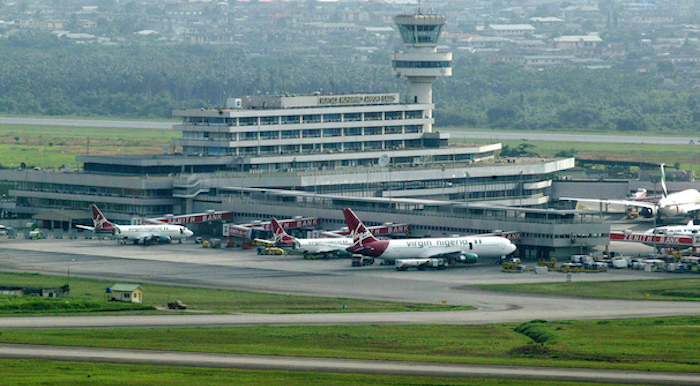
Recent revelations from IATA ranked Lagos and Abuja airports as the two most expensive in the world, said Taiwo Oyedele.
Aviation industry stakeholders in Lagos on Thursday attributed poor investment in the sector, high airfares and cargo charges to what they described as outrageous taxes and charges levied on airlines, entrepreneurs and other users of airports.
This, according to them was partly responsible for the high airfares being charged by airlines.
They said this during the Business Breakfast Meeting hosted by the Aviation Round Table Initiative with the theme, “Nigerian Aviation Sector Charges, Duties and Tariffs: Truly Exorbitant?.”
The chairman of the Presidential Committee on Fiscal and Tax Policies, Mr. Taiwo Oyedele, said disturbing reports indicated that it was more expensive to transport imported goods from Apapa port to the hinterland than it was to bring them from China.
He noted that the export process was equally arduous, with prolonged clearance and certification procedures, coupled with an array of levies, prompting some exporters to opt for alternative routes through neighbouring countries.
He said recent revelations from IATA ranked Lagos and Abuja airports as the two most expensive in the world, due to the endless levies, taxes, fees and charges but that whether or not this assertion was accurate, the mere perception of it was detrimental and demands urgent attention.
“Some reports indicate that carriers often opt to fly outbound cargo planes empty rather than incur exorbitant charges for loading goods from Nigeria to other countries.
“Similarly, expensive overnight parking has led to some airlines favouring neighbouring countries. To remain competitive regionally and on the global stage, we must address the burden of multiple agencies, complex paperwork, and a plethora of taxes and levies.
“As a nation, we cannot aspire to be competitive while at the same time burdening businesses with complex processes.
“We must cease taxing seeds and instead, foster an environment that encourages businesses to thrive, bearing fruits that we can tax.”
However, he said the federal government has promised to intervene in challenges caused by agencies collecting double taxation, multiple levies and charges which had plagued the aviation sector for decades.
“In this pursuit, the Presidential Fiscal Policy and Tax Reforms Committee was established, with a clear mandate to harmonise taxes and revenue collection agencies, promote business growth, and cultivate a competitive landscape, among others.
“On behalf of the PFPTRC, I assure you of our readiness to support the aviation sector in overcoming these challenges.
“Your insights and recommendations from this conference will not only shape our collective understanding but also guide our decisions as we work towards crafting appropriate policy measures and interventions to achieve a vibrant and globally competitive aviation industry for our dear country,” he said.
In his welcome remarks, the President of ARTI, Air Commodore Ademola Onitiju (rtd), said, the meeting was put together after controversies that trailed the recent submission by some participants at both local and international aviation events to the effect that charges at Nigerian airports especially Abuja and Lagos Airports were among the most prohibitive in the world.
He said as with most issues deserving attention, the ARTI decided to gather a respectable collegiate of knowledgeable individuals and organisations to interrogate the subject of charges and tariffs as applicable in the sector.
One of the guest speakers, Dr. Gbenga Olowo, who is the immediate past president of ARTI, while presenting his paper, asked if the airlines were revenue collectors, saying that commercial aviation particularly in Nigeria had not been a priority for subsequent governments.
“IATA has severally described airlines as cash-cow, meaning that they collect cash from one party and deliver to the other.
“This is truly so, especially in Nigeria when you consider the revelations during the just concluded 55th Annual General Assembly and summit of African Airlines Association (AFRAA) in Kampala, Uganda which rose with a statement by IATA that Lagos and Abuja are the most expensive airports in the world.
“Passenger Service Charge in Nigeria is $100 per passenger, while Doha, the best airport in the world, it is $44 and Dubai is $40.
“It is amazing that rather than pay attention to the myriads of problems, I read lately that the federal government allocated N5.5 billion ($6.5 million) to develop new airstrips and repair abandoned ones. Why build only to be abandoned?
“It is simply a question of priority and where the driver’s interest lies. What about millions of dollars expended annually by government to fund religious tourism to Jerusalem and Jeddah?” he asked.
Copyright © ENTREPRENEURSHIP DEVELOPMENT INSTITUTE 2015. All rights reserved.
Powered by: C.B.N